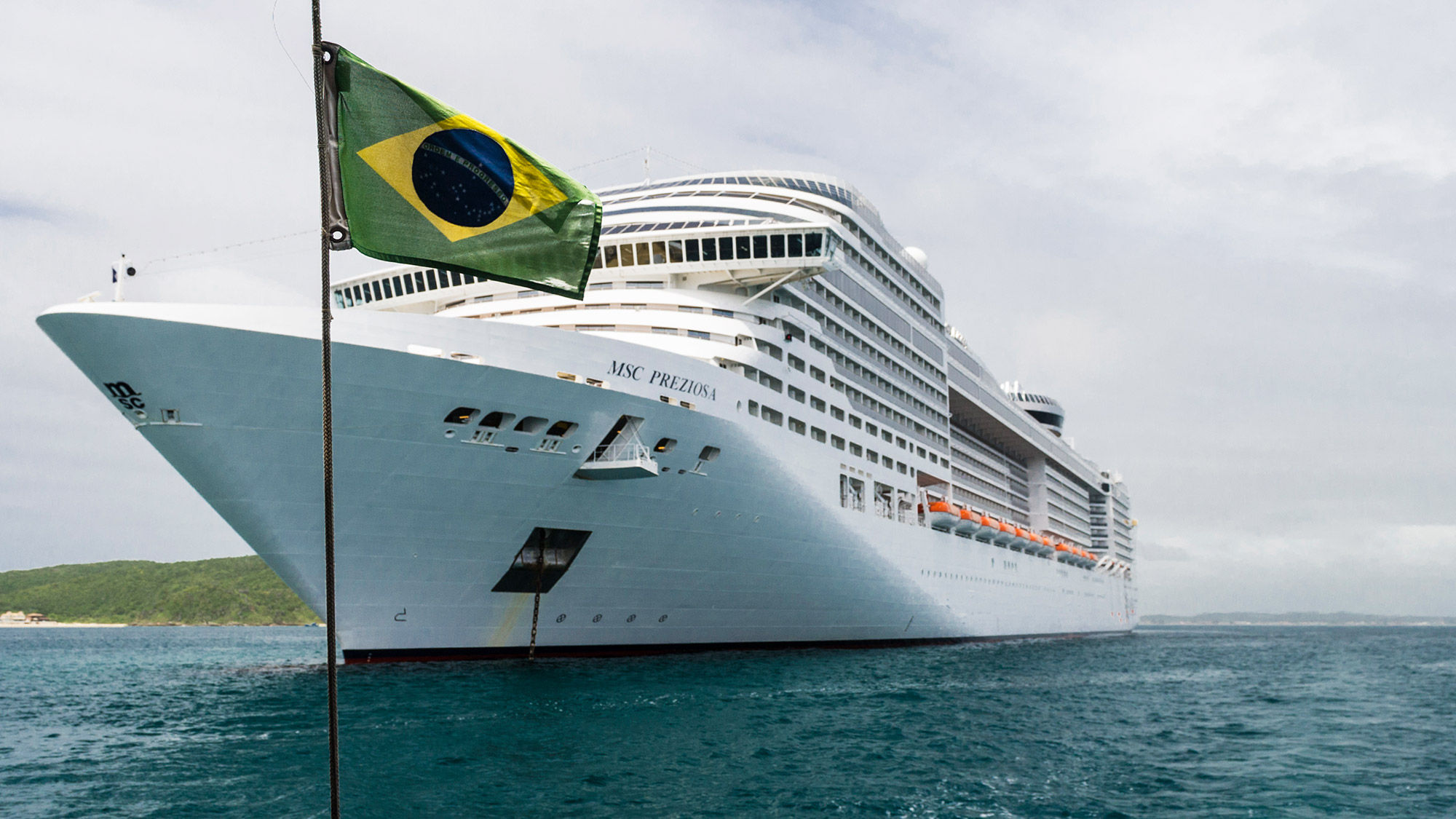RIO DE JANEIRO, BRAZIL – Prolonging a decision announced in January and taking into account the evolution of the epidemiological scenario in the country, CLIA Brazil (Brazilian Maritime Cruise Association) decided to extend the suspension of operations in ports until February 18, 2022.
According to Interministerial Ordinance number 666, published on January 20, 2022, for passenger ships to resume operations, all states and municipalities receiving cruise ships must agree to the return of operations to comply with the procedures and requirements of the strict safety protocols established by Anvisa.
At the end of 2021, Brazil took out a provision whereby it would only allow the circulation of cruise ships touching national ports, so the shipping companies visiting Argentina and Uruguay suspended operations in these two countries to privilege what they hoped would be the return to a successful season.

However, the Brazilian government suspended the trips as of January 21. This summer’s five cruise ships are currently anchored off the coast of Santos, ready for the resumption, with protocols fully implemented and more than 7,000 Brazilian and foreign crew members on board ready to work. Will they be able to resume their tours before the end of the season?
The season started in November 2021 and was expected to move more than 360,000 tourists, with an impact of R$1.7 billion (US$322 million), in addition to the generation of 24,000 jobs, involving an extensive chain of sectors of the economy, including trade, food, transportation, accommodation, tourist services, agency, and fuel, among many others.
SUPER-CARE CRUISES
Cruise ships are the only segment that requires exceptionally high levels of vaccination and 100% testing of each individual before embarkation for passengers and crew.
In Brazil, protocols require all guests to have the entire course of vaccination, negative coronavirus testing before boarding, continuous onboard testing, wearing masks, social distancing, and reduced ship occupancy, among other protocols.
When cases are identified due to the high frequency of onboard testing, these protocols help maximize containment with rapid response procedures designed to protect all guests, the crew, and the communities visited from the ships.
In addition, it is an industry that continuously monitors, collects, and reports case information directly to government agencies. Given this oversight and the exceptionally high rate of vaccination required on board, the incidence of serious illness is dramatically lower than ashore, and hospitalizations have been rare.
PROTOCOLS IN FORCE IN BRAZIL FOR CRUISE SHIPS
- Mandatory complete vaccination for guests and crew members (eligible under the National Immunization Plan);
- Pre-shipment testing (PCR up to three days prior or Antigen up to one day before departure);
- Frequent testing of at least 10% of persons on board and crew;
- Reduced capacity on board to facilitate social distancing of 1.5 m between groups and to allow the distribution of reserved cabins to isolate possible cases;
- Mandatory use of face masks;
- Completion of the personal health form (DSV – Traveler’s Health Declaration);
- Fresh air without recirculation, constant disinfection, and sanitization;
- Contingency plan with specially trained medical personnel and structure with modern resources for the care of guests and crew;
- Traceability measures and daily communication with ANVISA, Municipalities, and States.

